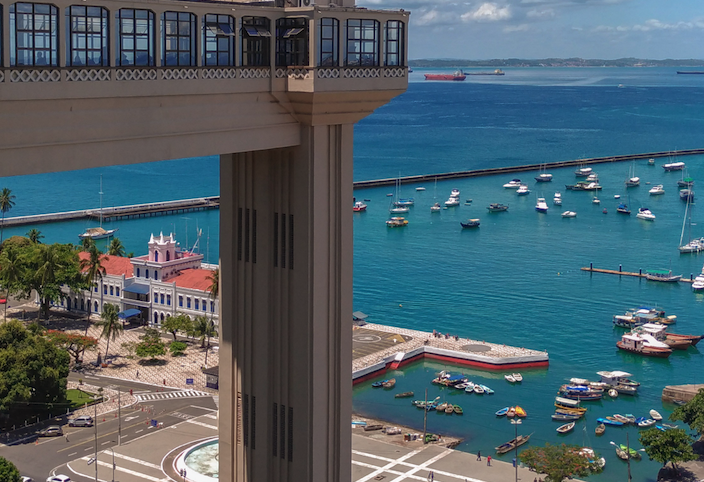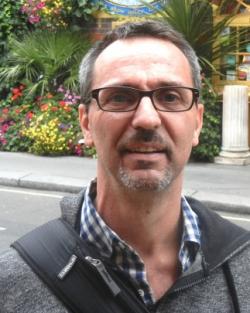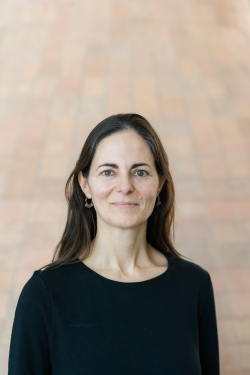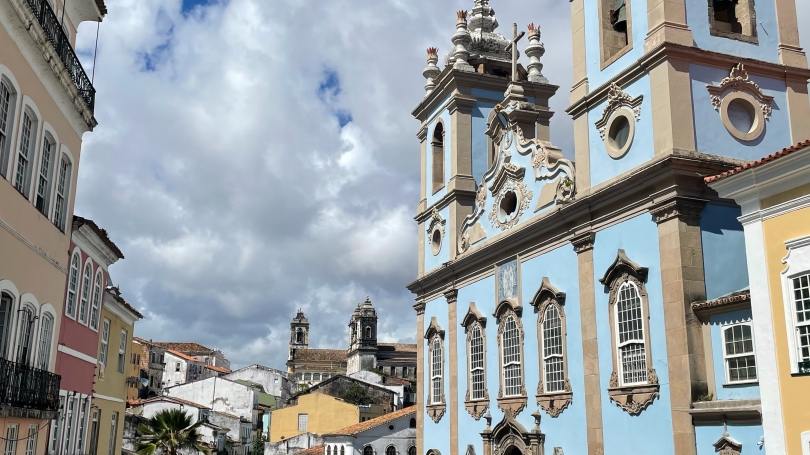
Brazil Learning Immersion in São Paulo and Salvador (BLISS)
Salvador, BrazilSao Paulo, BrazilAbout this Program
The Brazil Learning Immersion in São Paulo and Salvador (BLISS) program is run jointly by the Department of Spanish and Portuguese and the Department of Latin American, Latino & Caribbean Studies. BLISS is an innovative model of study abroad that combines advanced topic courses in English with Portuguese-language course options for all levels, from beginner to native speaker. Therefore, students do not need to have previous knowledge of Portuguese to join the program. Drawing from the social sciences and the humanities, BLISS provides a cross-disciplinary opportunity to study Brazil from multiple angles.
The academic training and experiential components expand and deepen students' knowledge about Latin America and the Lusophone world. Coupled with first-hand experience of living in Brazil, the two-topic courses develop a well-informed and rich understanding of the country's main features, problems, assets, and prospects. Curricular and co-curricular components are designed to complement each other and create a dialogue between classroom work and the surrounding natural, social, and cultural landscapes.
To promote a broader understanding of Brazil's historical, economic, ethnic, and cultural diversity, the program is held in two Brazilian cities. Students spend the first 5 weeks in São Paulo and the last 4 weeks in Salvador, Bahia. The program's project-based courses on urban studies and Afro-Brazilian culture capitalize on the environmental and social richness of each of those cities. This full immersion experience in an authentic cultural context that will provide a unique opportunity for students to develop language skills and intercultural competencies.
Enrollment Information
About 18 students are selected for the program.
For more information about applying for this program, see our webpage on How to Apply & our FAQs under section 2 (How to Apply: Application)
THE STUDY ABROAD EXPERIENCE
ACADEMIC PROGRAM
Faculty Director
 Carlos Cortez Minchillo Associate Professor of Spanish and Portuguese Languages and Literatures
Carlos Cortez Minchillo Associate Professor of Spanish and Portuguese Languages and Literatures Curriculum
PORT | 37.01:
Caring for the City: Activism, Diversity, & Resistance in Sao Paulo, Brazil (taught in English)
PORT | 35.02:
Brazil: History, Culture, Politics and Systemic Racism (taught in English)
For their 3rd course, students choose one of the following language courses:
PORT 11:
Intensive Portuguese - intensive Portuguese 1&2; for beginners
PORT 9:
Writing and Speaking: A Cultural Approach - for intermediate students
PORT 70.01:
Experiencing Brazil: Research in a Study Abroad Context – only for native speakers and advanced students of Portuguese
Prerequisites
FOR PORT 9: PORT 11 and 3
FOR PORT 70: PORT 11, PORT 3, PORT 8 and PORT 20 or proof of language proficiency in Portuguese.
Faculty Director
 Carlos Cortez Minchillo Associate Professor of Spanish and Portuguese Languages and Literatures
Carlos Cortez Minchillo Associate Professor of Spanish and Portuguese Languages and Literatures Curriculum
PORT | 37.01:
Caring for the City: Activism, Diversity, & Resistance in Sao Paulo, Brazil (taught in English)
PORT | 35.02:
Brazil: History, Culture, Politics and Systemic Racism (taught in English)
For their 3rd course, students choose one of the following language courses:
PORT 11:
Intensive Portuguese - intensive Portuguese 1&2; for beginners
PORT 9:
Writing and Speaking: A Cultural Approach - for intermediate students
PORT 70.01:
Experiencing Brazil: Research in a Study Abroad Context – only for native speakers and advanced students of Portuguese
Prerequisites
FOR PORT 9: PORT 11 and 3
FOR PORT 70: PORT 11, PORT 3, PORT 8 and PORT 20 or proof of language proficiency in Portuguese.
Student Life
Students live in shared, self-catered apartments/flats equipped with kitchen facilities for preparing meals while in São Paulo. Students should expect to share a bedroom and bathroom with other students. All students committed to this program will complete a housing preference form for shared housing and roommate placements.
Students live with homestay hosts while in Salvador. The homestay living arrangement is an integral and required component of this program. A homestay experience often offers several benefits, including improved language skills (especially in foreign language environments), deep cultural insights, integration into the local community, the opportunity to experience daily life like a local, and the chance to build meaningful relationships.
Financial Information
Tuition and Fees
The fees charged by the College for a Dartmouth-sponsored off-campus term of study include regular tuition charges for a term at Dartmouth, service fees, as well as the specific costs established for each off-campus study locale. In many programs, the room and board costs tend to be higher than for a term in Hanover. You can view a budget sheet for each program by clicking on the appropriate term under "Financing Your Program". The cost of transportation to and from the site is the responsibility of the student.
Financial Aid
In order that all qualified Dartmouth undergraduate students may have the opportunity to take part in off-campus programs, the College endeavors to adjust its normal financial aid awards for students already receiving aid. Tuition and expected family contribution for Dartmouth's off-campus programs are the same as for an on-campus term.
All costs, including airfare and spending money, are considered when determining the cost of an off-campus program. Any costs more than a typical term in Hanover are met with additional Dartmouth Scholarship Funds. If you have a work expectation for the term, this will be replaced by scholarship funding for programs that span the entire term.
Students are responsible for purchasing their own plane tickets and, in many cases, meals. Often, families find that they owe less for billable items for study away terms but will instead use more of their expected family contribution towards indirect costs such as the flight and meals. For help sorting out who pays what and how, contacting the Financial Aid office is often advisable.
Financing your program | Financial Aid | Scholarships | Budgeting & Costs
Program Resources
Department Contact
 Paula Holwerda Administrator
Paula Holwerda Administrator Alumni Contact
 TBD
TBD 